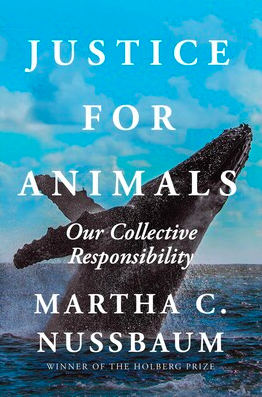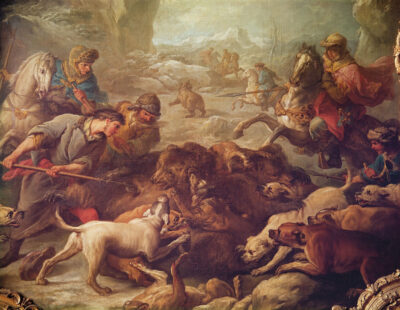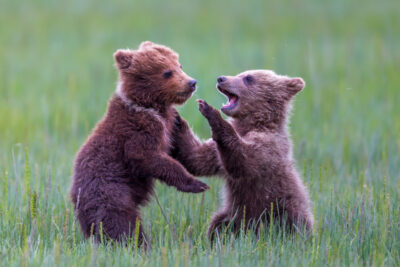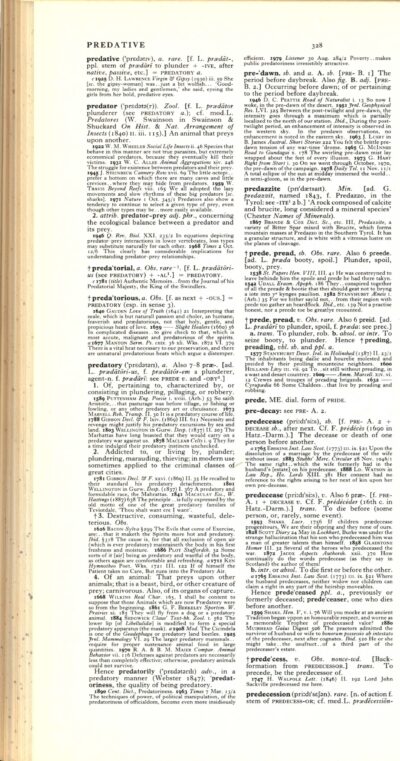| Creator | Martha C. Nussbaum |
| Media Form | Book Cover |
| Technique | Wildlife Photography |
| Publication Information | Book Justice for Animals: Our Collective Responsibility, written by Martha C. Nussbaum, published by Simon & Schuster |
| Date and Location of Publish | January 3, 2023; Simon & Schuster |
| Description | Book Cover of Justice for Animals: Our Collective Responsibility |
Martha C. Nussbaum, Ph.D., a Law and Ethics professor from the University of Chicago. In 2022, she published an essay titled ‘A Peopled Wilderness’ for The New York Review of Books. This essay was also meant to appear in a book she published a year later, which was called Justice for Animals: Our Collective Responsibility. This essay is one of the worst things I have ever read. Dr. Nussbaum may be a very well-educated woman, receiving her Ph.D. from Harvard and teaching at many prestigious universities in her time, but this essay must have been her worst work ever. Here are some quotes from that essay:
To say that it is the destiny of antelopes to be torn apart by predators is like saying that it is the destiny of women to be raped.
– Martha C. Nussbaum, A Peopled Wilderness (p.12)
What the hell does this even mean? Women do not need to be raped at all. It has no contribution to the cycle of life and should never be used as a comparison to animals being eaten. Antelopes need to be eaten for the cycle of life. The predators regulate their populations and ensure they do not become overpopulated. I tried to hear Dr. Nussbaum out on this essay, but all of her credibility went out the window with this horrible comparison. Whether or not she was trying to get a reaction out of the reader, it just came off as incredibly tone-deaf and unnecessary.
If by “Nature” and “the wild” we mean the way things go when humans do not intervene, that way is not so good for nonhuman animals. Nature has meant hunger, excruciating pain, often the extinction of entire groups.
– Martha C. Nussbaum, A Peopled Wilderness (p.4)
If you view ‘nonhuman animals’, as she put it, from a humanistic perspective, of course, it will seem violent and awful. But this is literally how animals live. They need to hunt for food, it’s programmed into them and their behaviors, and nothing humans will do will change that. Dr. Nussbaum must realize that animals have existed peacefully without humans for millenniums. Even if animals such as antelopes end up dead, maybe even brutally, they have not yet gone extinct, and if anything humans have been more threatening to the possible extinction of groups than any natural predator would ever.
This displaces the torture from the hunt to a factory farm visitors do not see. That is not an improvement. Synthetic lab-grown meat or even plant-based meat would be far superior. Even a
– Martha C. Nussbaum, A Peopled Wilderness (p.11-12)
humanely killed animal would be superior, since predation deaths are usually very painful.
In this quote, she is discussing what a zoo in San Diego does to still encourage predation of their leopards, without putting live animals in the enclosures. In this case, she disagrees with their choice to use commercial ground meat and sometimes bones, dead animals, and carcasses. Both of her suggestions seem ridiculous and would not work. Firstly, synthetic lab-grown meat is costly. The first lab-grown burger cost $300,000 to make, and while it was 10 years ago, the prices of creating them are still high. Ivy Farm Technologies is a British company dedicated to making sustainable meat, and they had estimated it would cost around $50 today to create a simple burger. And while for a human diet, this may not be a lot, to feed a bunch of predators, that sustain themselves on the meat of decently sized animals, this would be extremely expensive for zoos to use. And plant-based meat cannot be sustainable for these animals. For humans, if they choose to sustain themselves on a plant-based meat diet, they have to take extra supplements to provide for themselves, which would have to be applied on a larger scale for these animals. And, we cannot even guarantee that the animals would eat it. My cat at home is extremely picky. If it’s not a good cooked meat with gravy, she will not eat it. And while my cat is not a predator in a zoo, animals such as leopards, may completely reject lab-grown or plant-based meats as they will not be as sustainable or tasty as actual meat. The humanly killed meat is the only option that is slightly plausible but would still be costly and more difficult to obtain.
Okay, so I have talked a lot about my personal views of this essay, but how do other people react? I was shocked to find out that people loved her views and believed it to be a profound essay on animal rights. Kirkus Reviews, a book review website/company, did a review of her book:
She considers this theory superior to a “so like us” approach, which values animals for approximating human attributes such as speech but lacks “wonder at the diversity of nature [and] love of its many distinctive forms”; a utilitarianism that focuses on a calculus of pleasure and pain but ignores, for example, the sociability of animals; and a Kantian perspective that treats all creatures as ends rather than means while denying animals moral capacity. However, only beings that are intelligent, sentient, and striving (i.e., active in pursuing their goals) qualify for justice, hence omitting crustaceans, coral, and (maybe) bees. The robustness of Nussbaum’s approach becomes clear as she reflects on how we should think about animal death; “tragic dilemmas” that pit humans against animals, as in medical experimentation; companion animals; and animal-human friendships. Central to attaining animal justice are legal supports that confer rights on animals and give them standing in the courts.
–Kirkus Reviews
While this is an understandable point of view, it, similar to Nussbaum, completely disregards the nature of these animals and almost equates the death of animals to the death of humans, which are two very different things. I do support animal rights and believe that they should be able to live peacefully amongst humans and should have standing in courts, but Nussbaum isn’t necessarily suggesting that. She believes that we should remove ourselves from animal lives, yet also force them to remove a huge part of nature, predation. If she had spoken about animal testing or animal abuse, she’d have some merit, but she doesn’t. Instead, she talks about what they feed leopards in zoos and the fact that people enjoy seeing animals kill each other. If she cared about the livelihood of animals, she would not suggest giving them plant-based meats or lab-grown meat. She would advocate for the removal of animal testing, a higher punishment for abuse of animals, more national parks, which often have safe zones that humans cannot enter, etc.
I believe Dr. Nussbaum’s main downfall with this essay was her applying human logic to animals. She wants to make you as a reader feel horrible for these poor creatures dying mercilessly at the hands of other species, even though this is something that humans should have no involvement in. While she may make some good points, her credibility is shot after she writes things like the two quotes above. Ultimately, while trying to protect certain species of animals that are often eaten by their predators, she completely disregards the nature of these predators to hunt for their food.
Work Cited
Horowitz, Julia. “Lab-Grown Meat Could Be Served up for Dinner Soon. What Does It Taste Like? | CNN Business.” CNN, 19 Dec. 2022, www.cnn.com/2022/12/19/business-food/lab-grown-meat-ivy-farm-climate/index.html.
“Martha C. Nussbaum | Department of Philosophy.” Uchicago.edu, 2013, philosophy.uchicago.edu/faculty/nussbaum.
Ott, Stephanie. “Have a Taste of the World’s First Stem Cell Burger.” CNN, 5 Aug. 2013, edition.cnn.com/2013/08/05/world/europe/europe-stem-cell-burger-ott/index.html. Accessed 7 Nov. 2023.
Nussbaum, Martha C. “A Peopled Wilderness | Martha C. Nussbaum.” Www.nybooks.com, Dec. 2022, www.nybooks.com/articles/2022/12/08/a-peopled-wilderness-martha-c-nussbaum/.
Farm Technologies, Ivy. “Ivy Farm Technologies | Cultured Meat | Sustainable Meat Production.” Www.ivy.farm, www.ivy.farm/news/. Accessed 7 Nov. 2023.
“Justice for Animals.” Www.simonandschuster.com, Simon & Schuster, 2023, www.simonandschuster.com/books/Justice-for-Animals/Martha-C-Nussbaum/9781982102500. Accessed 7 Nov. 2023.
Kirkus Reviews. “JUSTICE for ANIMALS | Kirkus Reviews.” Www.kirkusreviews.com, Kirkus Reviews, 2022, www.kirkusreviews.com/book-reviews/martha-c-nussbaum/justice-for-animals/. Accessed 13 Dec. 2023.




